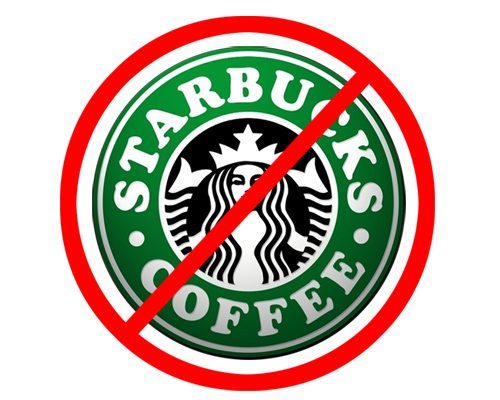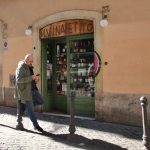
By Steve Brenner & Linda Martinez
For decades there has been speculation about if and when Starbucks would reach Italy, what many consider the “holy land” of coffee. Recently, Starbucks’ chairman emeritus, Howard Schultz, had his dreamy dream finally come true with the opening of a Reserve Roastery Starbucks in Milan this past September. They now already have two other locations in the city, and there’s no stopping this coffee behemoth once it’s gotten started. Now, of course, they’re setting their sights for Rome where they plan on starting with a location near the Vatican Museums and later at either Termini station or near the Spanish Steps. Depending on how the market reacts, 200-300 (!) stores are slated to open in the next five years – in other words; we could be seeing them all over Italy in a very brief period.
The debate about whether a Starbucks arrival to Italy’s shores is a good thing or a bad thing has been raging on for years. There are lots of arguments and justifications, some more valid than others, and they are often well counterpointed. Is it hard on local businesses, or does it create more employment? Does it dilute or create more awareness to coffee culture (as it does in many markets)? Will it push Italians even closer to their beloved local coffee bars or contaminate local coffee culture and whether it can even be considered part of that same coffee culture in the first place? And what about the free wi-fi, the comfy couches and clean bathrooms? Facebook comments explode with people who can’t seem to get enough of those although truth be told about the wi-fi, we’re still in Rome, folks, so don’t get too excited. While we do understand the utility of it for digital nomads or remote workers looking for a workspace, there are already several cool places in Rome available to work or hang out that have coffee, food
We’ve argued about whether there’s any comparison at all between Starbucks and local coffee shops. At the micro level, there’s the price difference, the taste difference, the wastefulness, and environmental implications of to go cups & lids and the highly caloric food options. At the macro level, there’s the bigger issue of how global companies work in general and tend to operate in a privileged world of legal tax avoidance and all sorts of other benefits not available to small businesses. Some insist it will be great for local economies with new job creation and others could argue that it hurts small businesses with unfair competition.
In sum, there are Starbucks fans, and there are Starbucks haters, and there are those on the fence who don’t care and will never frequent a Starbucks but also don’t see what all the fuss is about.
We embrace the viewpoint set out by the Slow Food movement: to be against the standardization of taste and the homogenization of cultures. Ultimately, Starbucks and any other worldwide chain is the exact opposite. Franchises are designed to deliver an identical product or service no matter where you are with only the slightest variations to respect dietary or religious beliefs. As foreigners living in Italy and as travelers, we appreciate and long for the differences in cultures and places and don’t want to see them eroded to the point where every city looks the same, tastes the same and sells all the same brands from the same shops.
Of course, in an open world, everyone should be free to choose for themselves, and if Starbucks is your thing, so be it. However, it seems like more and more of this world is only open to the global capitalists who want to take advantage of economic opportunities by expanding their markets but closed to the individuals who seek nothing more than to pursue opportunities for themselves and their families. If the world (and Italy right now is no exception) were truly open, then we wouldn’t be building walls, trying to Brexit, or fighting immigration in the most inhumane ways imaginable. When did it become an open door policy for corporations, but a closed door policy for people in need?
The debate of Starbuck’s merit will undoubtedly rage on, and complaining about them won’t affect the company’s plans for expanding here. We don’t like their overpriced coffee or their corporate ethos and certainly won’t be recommending them to our guests. The beauty and the point of travel are to experience the unique offerings of a place, and Italy has that in spades – coffee and all.
Check out Linda’s post on her list of five fab local Roman coffee spots to try.





I am in complete agreement. In Santa Fe, NM we have multiple Starbucks. I encourage everyone to support your locally owned, small and fabulous coffee shops. When we visit Italy we will be doing the same.
Very well written and I agree 100%
Well…first of all, Starbucks don’t really sell coffee. They sell a warm beverage containing coffee flavourings and a whole host of additives , for which they charge an eye-wateringly large sum of money. If people choose to drink this – their call.
Personally, I prefer to pay around €1 (in my part of Italy anyway) for a thimble-size jolt of intense flavour…or €1.20 for a sensibly-sized cappuccino. I’d become wary if the barrista offered me drapings of almond, coconut, avocado and passionfruit and/or chemically-induced sprinkles to accompany this.
I doubt whether Starbucks will ever open in here in Abruzzo – not much American tourist trade; and not many curious young Italians with sufficient money to make such a venture worthwhile. Rome, Florence, Venice et al are the targets here.
And by the same token that visitors will cram themselves into eateries offering cheap, tourist menus and convince themselves they’re eating real Italian food, they’ll also be drawn to the cozy familiarity and bogus authenticity of a Starbucks.
But I’m heartened by the in-bred Italian suspicion of anything that isn’t Italian, coupled with the unshakeable certainty that anything that isn’t Italian is ergo inferior. Food, wine and coffee are sacrosanct. Don’t fuck with these if you want to stay in business. The strangeness and appalling tastes of some/most tourists no longer shocks or surprises. If they want Starbucks, pasta Alfredo, chicken parm – beh.
Italians won’t/don’t.
Have faith.